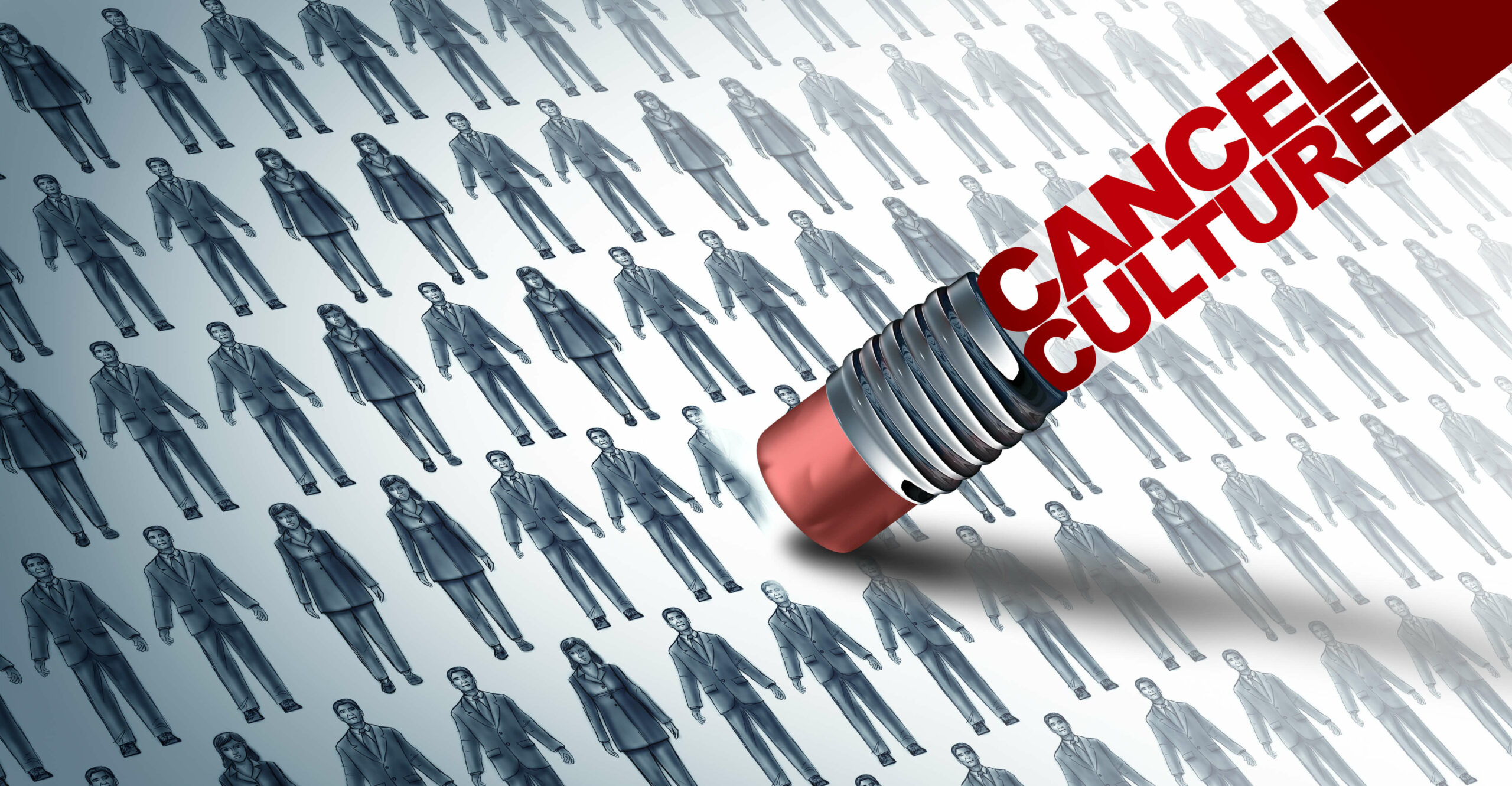After four months of ostracism for slapping Chris Rock at the 2022 Academy Awards, Will Smith has posted a video apologizing for his behavior. As apologies go, it’s late, but not bad. Yet as a PR observer, I’m not too concerned about Smith’s future. He’s a hugely successful actor with access to the best advice and a pretty smart guy. His career will probably recover.
But cancellation isn’t limited to celebrities. And internet justice can be even more consequential for ordinary people whose offenses fall short of slapping someone on live television. Just ask artist Mary Purdie, who was accused of plagiarizing a meme featured in a design she created for OK Cupid. (The accusations were false, but many of those who attacked her didn’t stop to verify them.) “I’ve survived five miscarriages and breast cancer and this was still the worst thing that’s happened to me,” she told “Good Morning America.”
When it comes to brand cancel culture, there’s often a constructive goal – to correct mistakes or encourage change. That’s empowering to regular consumers. Whitney Dailey of Porter Novelli describes it as “a way for individuals to hold companies accountable in a way they previously weren’t able to do.”
Yes, social media pushback can be constructive, yet it often spins out of control. When that happens, it can wreak personal and professional damage. So how can you avoid being cancelled?
Be thoughtful about sensitive issues
We encourage brands to take a stand on relevant matters, especially those aligned with the values of their customers. The companies that pledged support for female employees after the Dobbs decision, for example, are expressing an authentic position in response to a court ruling that will affect millions. They’re backing their content with action, too. But don’t jump on issues for the sake of notoriety; it will eventually backfire.
Avoid hashtag hijacking
In the same vein, hashtag hijacking is risky. In the first place, it steps on the toes of the legitimate owners of the topic, which looks bad. But cancellations result when hashtag-jumping is obviously for a quick visibility hit. It’s even worse when a brand ignores the context. Someone who worked for pizza company DiGiorno noticed #WhyIStayed trending on Twitter and smelled an opportunity. It’s unclear whether the brand realized the hashtag was for stories of domestic violence survivors, but it jumped on it to promote its pizza. Bad idea. The reaction was swift and harsh.
Be careful with humor

Humor is a fantastic way to humanize a brand, but my rule is to resist joking when the context is sensitive. Duolingo, the language-education app, recently learned this the hard way. “Y’all think amber watches tiktok?” it posted beneath a clip of Amber Heard referring to online harassment she’d endured on the platform. It was a pretty mild quip, and Duolingo probably thought it was a harmless way to be relevant. But the joke infuriated many TikTok users, including our very own Chris Harihar, whose tweet went viral. To its credit, the social media manager for Duolingo posted a heartfelt apology.
The same rules apply for sarcasm and snark in my view. Until Twitter launches an official sarcasm font, it’s just too easy to misunderstand a post or tweet in the heat of the moment. A final pro tip: stay away from social content about domestic violence unless it’s directly relevant and in a stone-cold-serious context. Same goes for the Holocaust. Not funny. Ever.
Don’t over-delegate social content
Social media marketing has matured dramatically over the last 15 years. Yet brands who routinely ensure several management levels and pairs of eyes view press statements will give a 24-year-old autonomy on a huge platform like Twitter or TikTok. Of course, speed and relevance are all-important in social media, but staff experience counts, too. Duolingo’s social media manager’s situation is clear from her response to the backlash.
“I made a mistake,” she said. “It’s deleted and I’m listening. I’m 24 – a yr out of college – managing an account that I didn’t expect to grow how it did & learning social responsibility on a curve. Taking full ownership. It’s an early career lesson for me and I’m learning to be better.”
It’s a good statement, but I’d argue the responsibility is not all hers.
Build social allies
Once you’re cancelled, it’s too late to reach out to friends and allies, and if the situation is radioactive, they’ll go radio silent. It’s more constructive to build relationships from the start. Even if there’s no budget for formal influencer or content creator relations, cultivate engagement with relevant social figures by engaging and appreciating their content. Again, this mirrors traditional media relations; top media contacts won’t guarantee a positive story, but media relationships will help you get a fair hearing.
Be prepared with a response
So what should a brand or person do if they’re cancelled? I’ll flesh out strategies in my next post, but the steps toward cancel club redemption are similar to any reputation crisis playbook – but on steroids. Speed is of the essence, which is why PR teams and agencies should be prepared with the right listening and monitoring tools and, critically, a plan for quick response. No one can predict the nature or severity of a reputation crisis, but most brands understand their own vulnerabilities and social communities. A good social media response plan will focus on a small number of likely scenarios; the key decision-makers; and logistics – who monitors for sentiment, who responds on which platforms, and who the deciders are.
Few cancellations are permanent. But the best reputation crises are the ones that didn’t happen.
